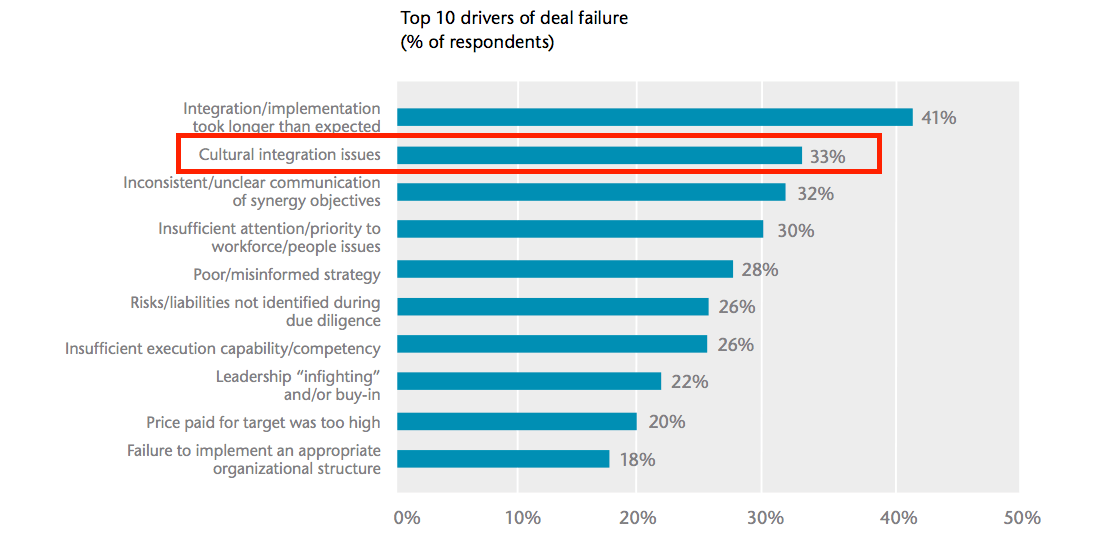Peter Franks is a Partner with the internet and technology industry focussed headhunting firm Neon River.
Having spent the last seventeen years advising CEOs and other senior executives on how to build out their senior management teams, I’ve noticed a few common themes that often explain why hiring processes go wrong.
More...
Hiring too much in your own image
Peter Drucker famously remarked that “culture eats strategy for breakfast”. Whilst nearly all CEOs understand the importance of creating the right company culture, ambiguities still remain. After all, what is the appropriate company culture for your business? This will naturally vary from company to company, but it’s important to understand that new hires should be adding something to your culture rather than merely conforming to your existing one. This is the difference between a “cultural fit” and a “cultural add”.
Many years ago, we worked with a founder CEO who used to work at McKinsey. We were tasked with hiring a CMO for his internet business. At interview, he would ask every single candidate McKinsey-style brainteasers – which might be appropriate for a graduate level strategy consulting hire, but spectacularly missed the point for a CMO hire for an internet business. A strong performance marketer might have worked their way up within internet companies, or perhaps forged a career in digital agencies – both culturally a long way away from the path of a traditional strategy consultant.
Another client was incredibly bright, and placed far too much emphasis on the academic record of candidates. Whilst academic achievement is rarely a bad thing, it’s pretty irrelevant for some roles, such as VP Sales type positions. A strong sales leader is likely highly motivated, personable and a strong communicator – they often excel at sport and have exceptional people skills, neither of which really correlate with academic attainment. Indeed, many Oxbridge grads won’t want to get their hands dirty and actually sell products to people. Sometimes the tendency is to hire too many “strategists” and undervalue strong execution skills – which might well come from a different type of personality.
“Culture eats strategy for breakfast”. — Peter Drucker
Slow hiring kills candidate interest
In the tech sector, it’s often what we call a “candidate’s market”. Strong candidates for key roles like CTO are in short supply and are well looked after by their current employers. Most of the time, any strong candidate who is looking for something new will be in multiple, competitive recruitment processes. Linkedin has democratised the recruitment industry to such a point that most candidates get several approaches from headhunters and in-house recruiters each week.
Whenever things get serious between one of our clients and one of our candidates, I like to ask the candidate if they are in other recruitment processes and furthermore if those other processes are being managed by headhunters or not. I love it when my candidate’s alternative recruitment processes aren’t being managed by headhunters, because this often gives us an opportunity to overtake them. You often can’t change the financial constraints of an offer that much, or change the fundamentals of a company’s proposition, market or role, but one thing you can influence heavily as a headhunter is the pace of the recruitment projects you manage.
You must understand that recruitment processes are a romance, a complex tangle of head and heart where rational assessment collides with feelings. Simply put, the longer your recruitment process, the more steps you put candidates through, and the greater the delays, the more a candidate loses interest. You must assess them properly of course, but any more than 3-4 interview steps are wildly unnecessary for most hiring processes. Yes, Facebook and Amazon often ask candidates to complete 8 or 9 interviews. They have such a strong employer brand that they can get away with this – 99% of companies cannot.
Long processes smack of indecision, of not knowing what good looks like, and possibly having too many stakeholders involved. Reports should not choose their boss, although they can sometimes be useful for a technical assessment of candidates.
Candidates appreciate proper feedback after interviews – whether that is good or bad by its nature. Giving them feedback promptly and managing their expectations around when and what the next steps are will build trust and make them view your process more favourably. It’s all about winning hearts as well as minds, and that’s all about how you treat your candidates in your process. Do they feel like superstars, or a piece of meat slowly going through your process factory?
Needlessly overhiring
This mistake is often the hallmark of an inexperienced hirer and is one you encounter a lot with founder CEOs. They have the right instinct in that they want to hire well and bring a quality candidate into the business, but lack understanding of the market and what their business really needs at a particular point in time.
An obvious example is when a European headquartered company needs to hire a CTO. The CEO is well aware of the large quantity of successful US headquartered technology companies, and resolves to relocate his CTO from the West Coast. There are doubtless many fine CTOs on the West Coast, but why would they relocate from there to join your company? Unless you are genuinely an exceptional business, moving halfway across the world, when you likely have a family is a huge ask when that candidate can simply stay put in the biggest tech hub in the world.
Another issue is cost; few CTOs in Europe earn $1m+. There are hundreds of CTOs in the US who make this much money. Can you really afford to pay a CTO £500k+ a year? West Coast candidates are very expensive, and given that you won’t convert many of them due to location anyway, it’s possible to waste a huge amount of time on this particular white elephant. European CTOs are often much cheaper – as this salary survey illustrates.
You also frequently see this with VP Sales hires. An early stage business might need more of a hands-on sales manager to get out there and sell product rather than a “Chief Commercial Officer” who would rather be purely managing others. It’s often better to hire someone who can execute now, and worry about the role outgrowing them later, rather than needlessly overhiring now.
Judging candidates against irrelevant metrics
“You must have 10+ years’ experience of leading digital marketing teams”.
Job descriptions are littered with statements like these which are often harmful. Firstly, you should never require a certain amount of years’ experience in a job description as this can be interpreted as a form of age discrimination. Just as importantly, it misses the point about what makes a good CMO in this example. It’s not whether they have 8 or 9 or 12 years’ experience of managing digital marketing teams. It’s their understanding of different acquisition channels, of how to tie acquisition and CRM together, of how to build a brand and shape a world-class team around them. Assess them against that – not pointless metrics.
“You will have led a team of 100+ engineers before”.
Whilst it is true that there’s a big difference between leading a team of 5 and a team of 100, again you see this kind of requirement in job descriptions all the time. Why is a candidate who has managed 120 engineers by definition a better fit than one who has managed 80? You might need a CTO with strong technical depth, an “engineer’s engineer” who can get into to the detail and earns the respect of their team. A strong project manager who can lead and organise teams to ship product on time and on budget. Again, judge them against that, not arbitrary, pointless metrics.
Don’t box yourself into a corner and unnecessarily constrain yourself with irrelevant metrics.



